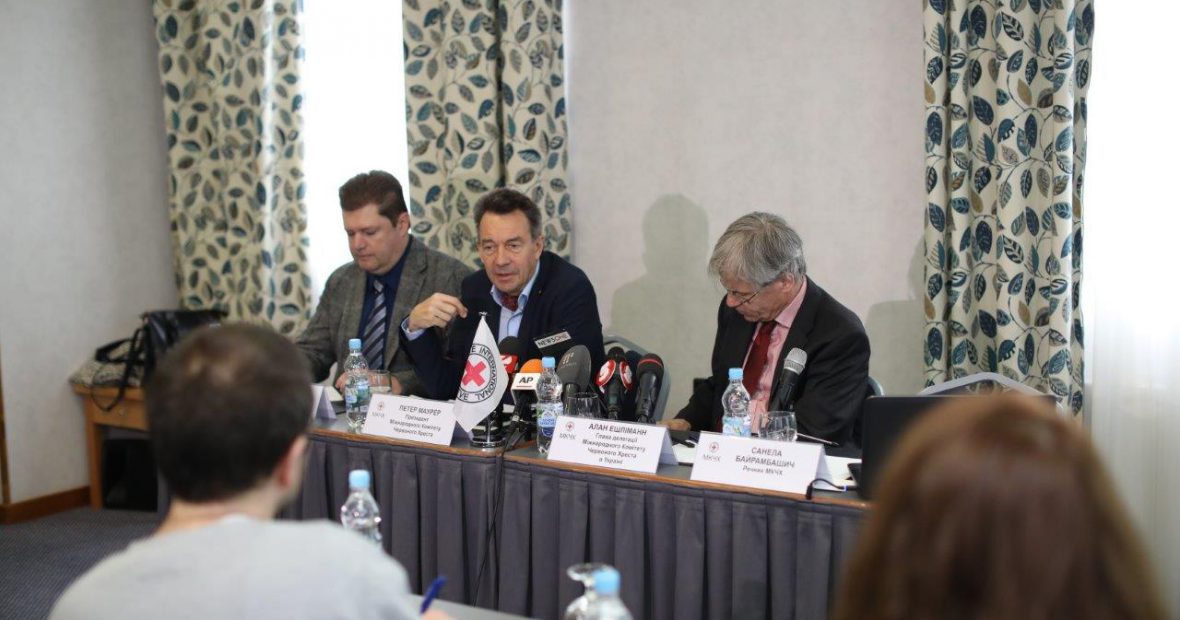The president of the International Committee of the Red Cross (ICRC), Peter Maurer, has concluded a 5-day visit to Ukraine. With hundreds of thousands of people living in towns and villages close to the front line, he expressed alarm about their living conditions following the dramatic increase in fighting in eastern Ukraine since the beginning of the year.
Mr Maurer said: “Hundreds of thousands live with the perpetual threat of shelling, shooting, and landmines. Their access to basics like food, water or electrical power has been dramatically curtailed. The functioning of the Donetsk water filtration station, on which tens of thousands depend, has been repeatedly disrupted as a result of the fighting. Only last week, it stopped functioning for several days and our teams began trucking in water, supplying nearly 150,000 litres in under a week,” said Mr Maurer, reiterating the ICRC’s call for a series of “safety zones” to be established to better protect critical water, gas and electricity installations on the front line.
On top of the threat posed to civilians by the rise in hostilities, and the poor living conditions experienced by many, the ICRC is concerned that people’s ability to move around is severely constrained, due to the difficult situation at the crossing points. Mr Maurer called for “concerted action” to be taken to improve the situation for civilians trying to cross the line of contact, who often have to wait for many hours exposed to heat, cold, and the threat of shelling and landmines.
During his visit, Mr Maurer met the president of Ukraine, Petro Poroshenko and other senior Ukrainian government officials . He also met with local representatives of other districts of Donetsk and Lugansk regions.
Following his meetings in Kyiv, Donetsk and Lugansk, Mr Maurer reiterated his call for “systematic and unhindered access” to be granted for ICRC delegates to all detainees held in connection with the Ukraine conflict, on all sides.
In addition, Mr Maurer spoke on the issue of people missing in connection to the conflict. “There are a large number of people – but no-one knows the exact number, perhaps between 1,000 and 2,000 – missing as a result of the conflict in eastern Ukraine. Finding answers and supporting their families is one of our priorities,” he said.
“Our dialogue with the authorities on this issue has so far been very constructive. But we must not lose momentum. A means to share information on missing people between the sides will be key to resolving cases,” added Mr Maurer.
The ICRC is ready to act as a neutral intermediary, between the sides, on specific humanitarian problems. It has adopted this role to help resolve a number of issues related to the water supply, detention and other key humanitarian concerns since the start of the Ukraine conflict.
For further information, please contact:
Sanela Bajrambašić, ICRC Kyiv, tel: +380 67 509 42 06
Jennifer Tobias, ICRC Geneva, tel: +41 79 536 92 48, jtobias@icrc.org
Find out more about:
ICRC proposals on “Safety zones”.
Missing people in connection with the conflict in eastern Ukraine.

